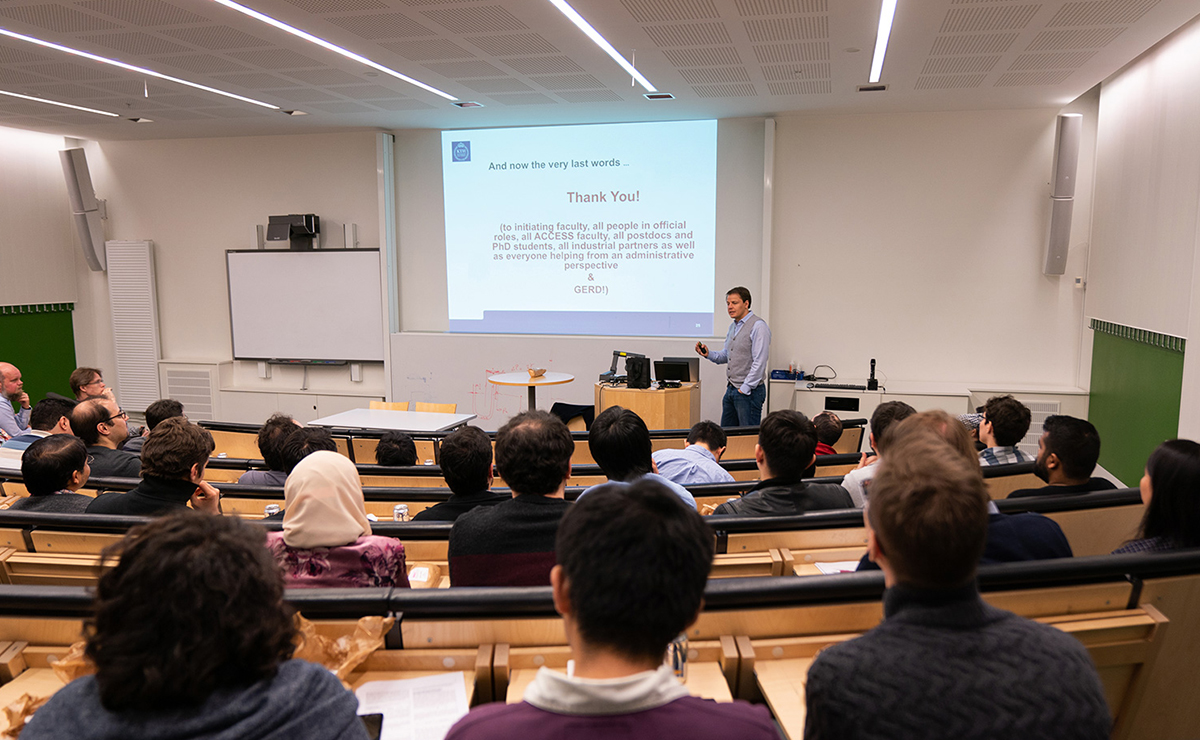A long-standing research center in a fast moving field
NEWS
Thirteen years is a long time – especially in rapidly changing areas like communications, networking, control systems and computer science. ACCESS has contributed to interdisciplinary research and doctoral education since it started in 2006. In May, the very last lunch seminar was held.

ACCESS was one of the two first centers that were established at KTH with a Linnaeus grant. The purpose of the initiative was to increase Sweden´s international competitiveness through strong research environments for prioritized areas.
– This kind of strategic thinking was new, and so was the requirement on collaboration to receive funding. Typically, disciplines were quite separate at that time, says James Gross, former Director of ACCESS.
The broad field of ACCESS has developed in an intense speed during the center´s active years. As the research advanced over the years ACCESS changed its research profile twice by selecting new thematic areas.
– One striking example is how the significance of computer science methods has been steadily increasing in all ACCESS fields, they have been “softwarerized” and it has changed how research is performed in those fields today, says James Gross.

How do you manage fast changes over such a long time?
– It is impossible to micromanage a center such as ACCESS over the years. But with the right culture of openness, combined with the determination towards high-quality research, you attract researchers that embrace change. Giving such people opportunities, has allowed ACCESS to anticipate new areas and develop.
What would we not have in Sweden today, were it not for ACCESS?
– I think the most important difference would be that Swedish academia and industry would not be staffed with the people it has now. ACCESS contributed with a lot of relevant expertise, and it was to a large part through its people that ACCESS established itself as a brand in Sweden and internationally. Also, KTH´s relationships with companies like Ericsson and Scania have been much supported by ACCESS. Such large enterprises would otherwise have been collaborating with other partners, possibly outside of Sweden.
The center´s overall impact can be seen in the numbers: Over 40 involved professors from different schools at KTH, 80 visiting researchers, 100 postdocs, 200 PhD students, a total of 1.2 BSEK turnover, 1800 conference papers, 900 journals, more than 50 awards and prizes, over 300 talks, seminars and events, as well as collaborations with over 20o academic entities and more than 30 industrial partners.
Is there anything you could have been better at?
– ACCESS always strived to reach beyond school borders, but this could have been even more emphasized as the center grew. At times, ACCESS appeared to be mostly associated with the former EE school.
What happens now?
– We have been ramping down over the last three years. But there are a bunch of new initiatives in the making that I believe will generate a lot of traction. It's time for new constellations.
After ten years of funding from The Swedish Research Council (VR) and three years of additional faculty funding, the ACCESS center has officially closed in April 2019.
Alexandra von Kern